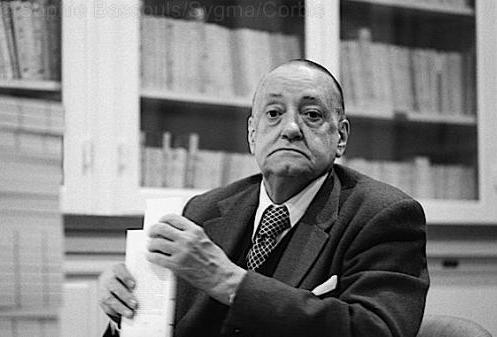
By Alexis Peña Hernández/ Journalism Student
As if he were created with the best ingredients, he emerged as an illustrious son of this kingdom, and established himself as a theorist of the Latin American and Caribbean world. In 1904 the world opened its doors to one of its best writers, Alejo Carpentier Valmont, born on December 26 in Lausanne, Switzerland.
At just five years old, he moved with his parents to the city of Havana, where they settled. Years later he was an architecture student, but the realities of life forced him to become the man of the house, so he had to put aside his career and dedicate himself to working to support his mother, after the abandonment of his father.
In the misguided search for a way to his economic balance, he found the job that took him into journalism, it was a column dedicated to the review of masterpieces in La Discusión, a newspaper with a conservative style, where some time later he would find himself in the entertainment section, which allowed him to soak up the culture of a nation that adopted him as its son.
His career as a journalist and art critic allowed him to develop a special sensitivity towards the cultural manifestations of his time. This experience was reflected in his literary work, in which he combined elements of magical realism with a deep knowledge of Latin American history and culture, which also enabled him to master a vocabulary with which he emanated in his letters, the fascination for each plot.
Alejo Carpentier was a multifaceted author who ventured into various literary genres, from novels to essays and chronicles. His narrative style is characterized by rich, detailed prose, filled with evocative images and suggestive metaphors that transport the reader to fascinating and mysterious worlds, as if telling the stories of his adventurous seafaring spirit.
One of the most notable aspects of Carpentier's work is his ability to recreate the history of Latin America in an original and creative way. In novels such as The Kingdom of This World or The Lost Steps, Carpentier delves into the continent's past to explore its myths, legends and traditions, offering a unique and enriching vision of Latin American identity.
Carpentier also stood out for his deep knowledge of music and the visual arts, influences that are reflected in his writing through sensory and evocative descriptions that create a unique atmosphere in his works, but not only art was his path, he also He was an intellectual committed to his time, interested in political and social issues that affected Latin America. Throughout his career, he addressed topics such as cultural identity, colonial history, slavery and the fight for independence, always from a critical and reflective perspective.
His work has been widely studied and recognized around the world, and has influenced generations of Latin American writers who have found in a literary legacy, a source of inspiration and an unavoidable reference.
His contribution to Latin American literature is invaluable, and his ability to explore the complexities of the region's identity and history remains relevant today.
Alejo Carpentier Valmont died in Paris, France, on April 24, 1980 due to cancer while performing diplomatic duties. His remains were repatriated and buried in the Colón cemetery, the main necropolis of Havana, but his greatness delights every reader to whom he knew how to relate the stories of his own kingdom. (Photo: Cubaliteraria website)